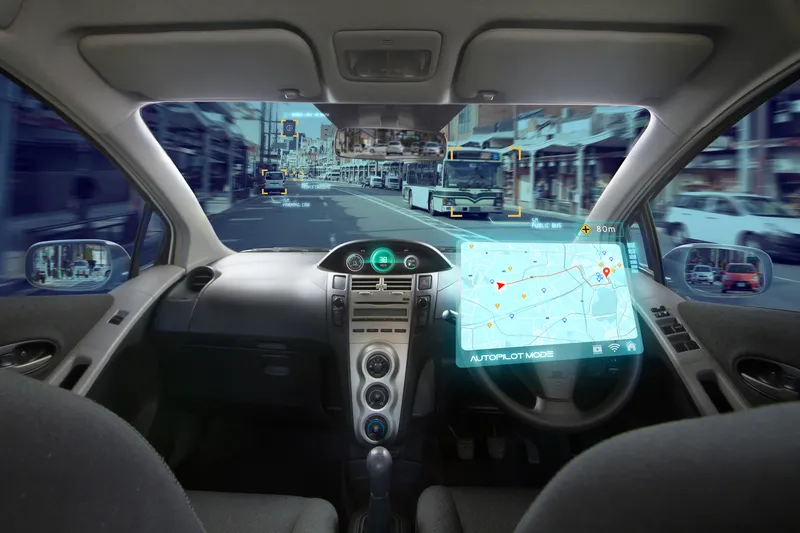A new Leaderboard Report from Navigant Research examines the strategy and execution of 18 original equipment manufacturers (OEMs), including company profiles and rankings, to provide industry participants with an objective assessment of these companies’ relative strengths and weaknesses in the developing autonomous vehicle market.
The report, Navigant Research Leaderboard Report: Autonomous Vehicle OEMs, examines the strategy and execution of 18 global vehicle manufacturers that are involved in the emerg
October 20, 2015
Read time: 2 mins
A new Leaderboard Report from 7560 Navigant Research examines the strategy and execution of 18 original equipment manufacturers (OEMs), including company profiles and rankings, to provide industry participants with an objective assessment of these companies’ relative strengths and weaknesses in the developing autonomous vehicle market.
The report, Navigant Research Leaderboard Report: Autonomous Vehicle OEMs, examines the strategy and execution of 18 global vehicle manufacturers that are involved in the emerging autonomous vehicle market. These players are rated on 12 criteria: vision, go-to-market strategy, partnerships, production strategy, technology, geographic reach, sales, marketing, and distribution, product capability, product quality and reliability, product portfolio, pricing, and company commitment.
Fully automated vehicles that do not require a human driver are expected to be about a decade away from production, but the incremental systems necessary as foundations for the technology are emerging today. A handful of OEMs in the autonomous vehicle segment are currently leading this market, differentiating themselves through exceptional technology development, strong supplier relationships, and sustainable business models.
“The competition to be first to move more advanced capability into production is strong,” says David Alexander, senior research analyst with Navigant Research. ”All of the major global OEMs are now participating, and aside from the four manufacturers in the lead, there are four more who are slightly ahead of the pack, with another five close behind.”
The desire to reduce injuries and deaths resulting from traffic accidents and the potential to reduce overall energy use represent the biggest factors driving vehicle automation, according to the report. Although reliability, security, and liability issues pose major barriers to adoption, the market is moving forward, and by 2020, manufacturers are expected to offer enhanced self-driving capability that includes the ability to change lanes and follow simple directions from a navigation system.
Using Navigant Research’s proprietary Leaderboard methodology, companies are profiled, rated, and ranked with the goal of providing industry participants with an objective assessment of these OEMs’ relative strengths and weaknesses in the fast-developing market for advanced driver assistance systems and self-driving features.
The report, Navigant Research Leaderboard Report: Autonomous Vehicle OEMs, examines the strategy and execution of 18 global vehicle manufacturers that are involved in the emerging autonomous vehicle market. These players are rated on 12 criteria: vision, go-to-market strategy, partnerships, production strategy, technology, geographic reach, sales, marketing, and distribution, product capability, product quality and reliability, product portfolio, pricing, and company commitment.
Fully automated vehicles that do not require a human driver are expected to be about a decade away from production, but the incremental systems necessary as foundations for the technology are emerging today. A handful of OEMs in the autonomous vehicle segment are currently leading this market, differentiating themselves through exceptional technology development, strong supplier relationships, and sustainable business models.
“The competition to be first to move more advanced capability into production is strong,” says David Alexander, senior research analyst with Navigant Research. ”All of the major global OEMs are now participating, and aside from the four manufacturers in the lead, there are four more who are slightly ahead of the pack, with another five close behind.”
The desire to reduce injuries and deaths resulting from traffic accidents and the potential to reduce overall energy use represent the biggest factors driving vehicle automation, according to the report. Although reliability, security, and liability issues pose major barriers to adoption, the market is moving forward, and by 2020, manufacturers are expected to offer enhanced self-driving capability that includes the ability to change lanes and follow simple directions from a navigation system.
Using Navigant Research’s proprietary Leaderboard methodology, companies are profiled, rated, and ranked with the goal of providing industry participants with an objective assessment of these OEMs’ relative strengths and weaknesses in the fast-developing market for advanced driver assistance systems and self-driving features.









